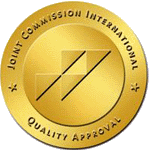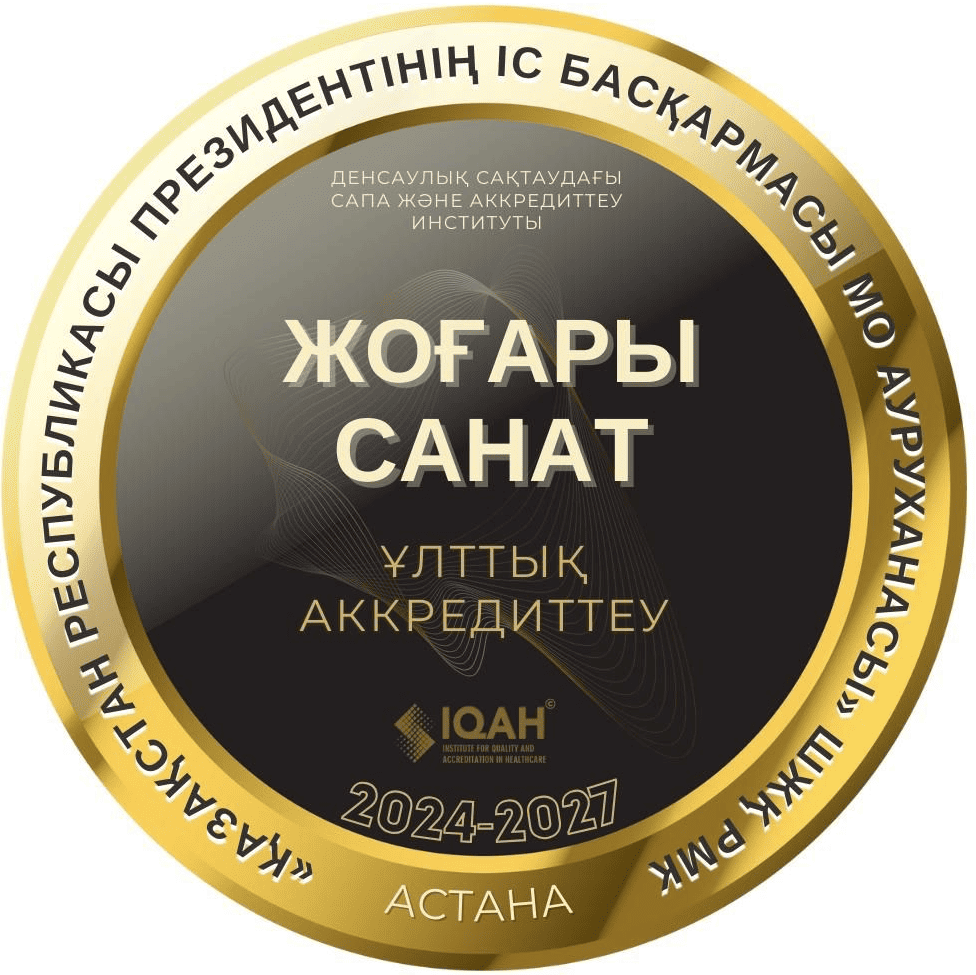Clinical Diagnostic Laboratory
Temporary PCR laboratory for diagnostic purposes of COVID-19 coronavirus infection
About the Laboratory
Today, the Clinical Diagnostic Laboratory of the Medical Center Hospital of the President’s Affairs Administration of the Republic of Kazakhstan is a department of high technologies: it is represented by equipment from leading manufacturers - BIO-RAD, BD Biosciences, Roche Diagnostics, Sebia (USA, Germany, Netherlands, Austria, and other). The Clinical Diagnostic Laboratory provides a wide range of highly specialized diagnostic services. The laboratory service includes a laboratory for personalized genomic diagnostics and a temporary virological PCR laboratory. Quality and competence requirements which confirm: guaranteed quality and reliability of examination obtained by the laboratory, recognition of examination results obtained in our laboratory abroad, official recognition of the competence of the Presidential Hospital laboratory at the national and international levels, maintaining the level of competence through regular inspections. Clinical and Diagnostic Laboratory of the Presidential Hospital is in the register of accredited laboratories on the “National Committee on Accreditation” LLP website.
- Participation of the Clinical Diagnostic Laboratory in the international quality assessment system (EQAS-USA, RIQAS-UK, FSEEQLT -RF)
- Ensuring internal quality control system
- Research on high-tech modern equipment from Abbott, Siemens, Bio-Rad, Tecan, Becton Dickinson & Co, Sysmex Corporation, BioMerieux
- Highly qualified staff
- Use of disposable sterile blood collection systems and other biological materials
- Accreditation according to the standard ST RK ISO 15189-2015 “Medical laboratories
- Guaranteed quality and reliability of studies obtained by the laboratory
- Test results of our laboratory are recognized abroad
- Official recognition of the competence of our laboratory at the national and international levels
- Maintaining competency through regular inspections
The list of services performed reaches about 1000 items. The following methods are used in our work
- Flow cytometry
- Enzyme-linked immunoassay
- Hematology
- Biochemistry
- Hemostasis examination
- Polymerase chain reaction (PCR)
- Immunofluorescence
- Serologic examination
- Bacteriological examination
- Parasitological examination
- Molecular-genetic examination
General blood test
To obtain accurate diagnostic data in the results of laboratory analysis, it is necessary to follow several rules before taking the analysis (test):
- Blood should be taken from the vein for examination between 8 and 10 am fasted, that is, the patient does not have to eat after a normal dinner until blood is taken
- Juice, tea, coffee should also be excluded from the ratio
- You can drink water
- On the eve of the blood test, do not eat food with a high fat content
- Avoid eating high calories (fat) foods
- Eliminate physical exertion and emotional stress
- Avoid any stressful situations
- Exclude alcohol, smoking
- Exclude the use of medications or while taking in-patient treatment, it is necessary to take blood test before taking medications
- Physiotherapy procedures, as well as X-ray, ultrasound and rectal examinations are performed after taking blood for analysis, since exposure to low-frequency or high-frequency radiation can change the hematological parameters of the blood (reduced concentration of white blood cells, hemoglobin)
In order to obtain accurate diagnostic data in biochemical analysis results, it is necessary to follow several rules before taking the analysis (test):
- Blood is taken for the examination after 8-14 hours of fasting and abstinence from alcohol, in the morning (between 8 and 11 am), with minimal physical and emotional activity immediately before taking blood test (20-30 minutes), in a lying or sitting position
- It is necessary to refrain from smoking 2 hours before blood test
- In case of an urgent need to take the material at another time of the day, be sure to indicate the period of time that has passed since the last meal
- The collection of material for the examination should be carried out before performing a medical appointment (taking medications, injections, physical methods of treatment: UHF, SHF or diagnostic (X-ray, ultrasound, endoscopic) measures
In order to obtain the most accurate and reliable results when collecting urine, the following requirements must be met:
- Exclude the use of diuretics 48 hours before the collection of urine (adjust with your GP)
- 24 hours before the examination, exclude spicy, salty food from your ratio, as well as food that change the color of urine (beets, carrots)
- Eliminate physical and emotional stress the day before the examination
- The collection of urine is carried out after conducting the hygiene of the external genitals
- For examination, use the average portion of morning urine or urine collected during the day
- Urine is collected during the day: the first morning portion of urine is eliminated, all subsequent portions of urine released during the day, night and the morning portion of the next day are collected in one container, which is stored in the refrigerator (+4 +8 C) during the entire collection time
- After completing the collection of urine, the contents of the container are accurately measured, be sure to mix and immediately pour into a sterile container, which must be purchased in advance at any pharmacy
- Bring this container to the laboratory for examination
- Do not bring all the urine
- You need to specify the daily volume of urine (diuresis) in milliliters, for example: "Diuresis 1250 ml"
In order to obtain accurate diagnostic data in the biochemical analysis results, it is necessary to follow several rules before taking the analysis (test):
- Do not eat for 12 hours before taking blood test
- Avoid physical activity, alcohol intake, and fatty foods a day before the blood test
- Exclude coffee, alcohol, and garlic from your ratio during the day
- Refrain from smoking 2 hours before the blood test
- If possible, stop taking medications a day before taking the blood test (adjust with your GP)
- Before the blood test, you have to inform your GP about taking blood thinners
- Blood thinners should be taken only after the blood collection procedure
- A week before the blood test, in accordance with your GP, all aspirin-type drugs, Indomethacin, Sulfapyridazine, and antidepressants should be discontinued
- If it is not possible to avoid taking them, you must inform about it
- Do not eat for 12 hours before the blood test
- Eliminate physical and emotional stress 30 minutes before the examination
- Exclude coffee, alcohol, and garlic from your ratio during the day
- Refrain from smoking
- Do not eat for 3-4 hours before the blood test
- Eliminate physical and emotional stress 30 minutes before the examination
- Stop taking heparin and its analogues 5 days before the examination (adjust with your GP)
- A week before the examination, the diet and ration regime do not change
- The amount of carbohydrates in the food should be at least 125 g per day for 3 days before blood test (the diet is adjusted with the GP)
- You should not eat anything for 12 hours before the test, but in no case should the fasting last more than 16 hours
- Exclude any physical activity for 12 hours before the test
- Blood for glucose is taken in the morning fasted, then a glucose solution is drunk (the concentration of the solution and the volume are prescribed by the doctor)
- Then, blood is taken for examination 1 and 2 hours after taking the glucose solution
General urinalysis
- Urine collected with a volume of less than 7 ml is not accepted for examination
- On the eve of the test, it is recommended not to eat vegetables and other food that can change the color of urine (beets, carrots), not to take diuretics
- Perform a thorough hygienic genitals procedure before collecting urine
- Collect approximately 50 ml of morning urine in a container
- When urinating in the morning for the first time, release a small amount of urine (for the first 1-2 seconds) into the toilet, and then, without interrupting urination, substitute a container for collecting urine, in which to collect approximately 50 ml of urine
- Women are not recommended to take a urine test during menstruation
- Immediately after collecting the urine, close the container tightly
- It is necessary to deliver the container with urine to the laboratory from 8 am to 10 am
- Urine collected with a volume of less than 10 ml is not accepted for examination
- Perform a thorough hygienic toilet of the genitals before collecting urine
- At the first plan of morning urination, release a small amount of urine (the first 2-4 seconds) into the toilet, and then, without interrupting urination, substitute a container for collecting urine, in which to collect from 10 to 50 ml of urine
- Women are not recommended to take a urine test during menstruation
- Immediately after collecting the urine, close the container tightly
- It is necessary to deliver the container with urine to the laboratory from 8 am to 10 am
- The entire volume of urine is collected per day. The first morning portion of urine is removed
- All subsequent portions of urine released during the day, night and morning portion of the next day are collected in one container, which is kept closed in the refrigerator (+4...+8°C) during the entire collection time (this is a necessary condition, since the content of the examinated analyte is significantly reduced at room temperature)
- After the completion of the urine collection, the entire contents of the container must be delivered to the laboratory from 8 am to 10 am
- Before collecting urine, perform a thorough hygienic genitals procedure
- Women are not recommended to take a urine test during menstruation
- Number the urine collection containers 1, 2, 3. At the count of 1-2 (1/5 of the total urine), collect in container №1, at the count of 3-7 (3/5 of the total urine in container №2), the remaining urine in container №3
- Immediately after collecting urine, close the containers tightly
- Deliver containers of urine to the laboratory from 8 am to 10 am
- During the analysis, it is not recommended to consume more than 1-1.5 liters of water or other beverages
- Record the amount of liquid drunk
- At 6 am in the morning, empty your bladder, you do not have to collect urine
- Then, from 9 am, 8 portions of urine are collected
- 9 am - 12 pm – portion 1
- 12 pm - 3 pm - portion 2
- 3 pm - 6 pm - portion 3
- 6 pm – 9 pm - portion 4
- 9 pm – 12 am - portion 5
- 12 am – 3 am - portion 6
- 3 am – 6 am - portion 7
- 6 am - 9 am - portion 8
- In the specified time intervals, if there are several urges to urinate, collect all the urine in a container with the corresponding marked time interval
- Do not pour anything into the toilet
- If a specific container is overfilled, an additional container is taken and the corresponding time interval is indicated on it.
- If you have no desire to urinate at a certain interval, leave the container empty and send it as it is
- It is necessary to deliver the container with the urine to the laboratory from 8 am to 10 am
- At 8 am, empty the bladder into the toilet and then, until 8 am of the next day, collect all the urine in one container (a three-liter jar)
- Urinate in the jar for the last time at 8 am the next day. Close the container with a lid and deliver it to the place where the tests are taken along with the appointment card
- In the morning, at the appointed time, carefully perform external genitals hygiene procedure, collect 50-100 ml of urine in a bowl, preferably from an average portion
- Close the container with a lid and immediately deliver it to the place where the tests are taken, along with the appointment card
- In the morning, carefully perform external genitals hygiene procedure and allocate the first stream of urine on the count: 1, 2 in the toilet, and then collect the average portion of urine in a sterile bowl
- Avoid touching the inner surface of the stopper and test tube, and place the lid on a clean cloth with the inner surface facing up
- Finish urinating in the toilet bowl
- Bring the collected urine to the designated place
- In the morning, after waking up, carefully perform external genitals hygiene and collect 50-70 ml of urine from the average portion of the urine stream
- Close the container with a lid and leave it in the place where the tests are taken along with the appointment card
- In the morning, before bringing the urine, it is necessary to carry out the external genitals hygiene procedure in the direction from front to back, with a weak soap solution without the use of antiseptics
- After hygiene procedure, start urinating in a dry, sterile container (without preservative solution) to collect urine
- The first portion of urine has to be collected, immediately after sleep, in an amount of 10-50 ml
- Do not cool or freeze the urine!
- The sample must be delivered to the laboratory as soon as possible
- The analysis is not appointed during menstruation (periods)
- To control the treatment, it is recommended to conduct an examination no earlier than 5-6 weeks after the end of treatment
- In the morning, before brushing your teeth (to avoid getting red blood cells into the sputum, since microtraumas are possible when brushing your teeth), rinse your mouth thoroughly, then cough into a container
- Avoid saliva entering the container.
- It is necessary to deliver the container with urine to the laboratory from 8 am – 10 am
- Collect 3 sputum samples within 2 days according to the following schedule
- The first sputum sample is collected under the supervision of a medical professional (the first day of the examination)
- In the second sample, you need to collect the morning portion of sputum at home (the second day of the examination)
- In the presence of a medical professional, you need to collect the third sample (the second day of the examination), during the day
- Before collecting the material for the examination, it is not recommended to smoke, there are no special dietary restrictions, you cannot chew nuts, seeds (to avoid injuries to the oral mucosa)
- Sputum for the examination is collected before eating, after rinsing the mouth with warm boiled water, while you cannot brush your teeth in the morning, so you can damage the gum mucosa
- While collecting sputum, take a comfortable position for yourself: standing, sitting or lying on your healthy side
- Sputum is obtained from the deep parts of the bronchial apparatus as a result of a nasal cough
- If sputum is absent or a small amount is separated, you should use a coughing agent or make aerosol inhalations that increase the secretion of the bronchi (the method of stimulating sputum release should be agreed with your doctor or nurse)
- So, in the morning, on an empty stomach, brush your teeth and rinse your mouth with water, then take a few deep breaths and cough up the phlegm in a clean, dry container, only 15-20 ml
- Close the phlegm container tightly and bring it to the place indicated in the appointment card
- Brush your teeth and rinse your mouth thoroughly with boiled water before clearing your throat, then make 2-3 spits of phlegm into the jar, taking care not to allow saliva to enter
- The dishes are sterile, so do not touch the edges with your hands or mouth, and after coughing up phlegm, immediately close the lid and give it to the nurse
- In the morning, fasted, before clearing your throat, brush your teeth and rinse your mouth thoroughly with water
- Then make a few spits of phlegm into the jar and immediately give it to the nurse
- Sputum should be collected in the morning, before taking meals
- Before collecting sputum, brush your teeth and rinse your mouth with boiled water
- Do not allow saliva and nasal mucus to enter the sputum
- Sputum is collected in a sterile container, in an amount of at least 0.5 ml.
- It is recommended to keep the container as close to your lips as possible, and immediately spit phlegm into it as it clears
- Only collect sputum that is released by coughing, not by expectoration
- Before collecting saliva, the mouth is rinsed three times with boiled water
- Saliva is collected in a sterile bottle, in an amount of 3-5 ml.
- Saliva should be collected immediately before the test, and immediately delivered to the laboratory
- Coprogram, fecal occult blood test, fecal examination for the presence of Helicobacter pylori antigen
- The material (feces) is collected before the start of treatment with antibacterial and chemotherapeutic drugs (if not possible, then only 12 hours after discontinuation of the drug)
- 3-4 days before the examination, it is necessary to stop taking laxatives, castor and vaseline oil, stop the administration of rectal candles
- Feces obtained after an enema, as well as after taking barium (during X-ray examination) are not used for the examination
- By natural defecation in a clean bowl, collect the feces, preferably from the last portion of feces (make sure that no urine gets in)
- Feces are collected in a clean, disposable container with a screw cap and a spoon in an amount not exceeding 1/3 of the container volume
- The material is delivered to the laboratory no later than 3 hours after the collection of the analysis, according to the schedule of receiving the biomaterial (from 08 am to 10 am)
- The biomaterial delivered in a matchbox or other leaky container (plastic cup, bag) is not accepted for the examination
- For the examination of feces for hidden blood, a special diet is not required, since the analysis is performed by the immunochromatographic method
- Immediately after defecation, take a stick on the lid of a plastic container of three sections of 30-50 g of feces without impurities of water and urine and place them in a bottle
- Close the lid and leave it together with the direction in the specified (specially designated) place
- Immediately after defecation, take a stick on the lid of a plastic container of three sections of 510 gr. feces in a bottle
- Close the lid and immediately deliver it to the place indicated in the appointment card
- Take a swab from the cervix no earlier than on the 5th day and no later than 5 days before the expected start of menstruation
- Do not inject medications, candles, creams, including creams for performing ultrasound examinations into the vagina
- Exclude sexual intercourse 24 hours before the smear test
- For 2-3 days, do not douse the vagina, so as not to wash out the flora, do not inject medicines, candles, creams into the vagina a week before the examination
- Exclude sexual intercourse 24 hours before the smear test
- The analysis cannot be taken during menstruation (periods)
Taking material from the urogenital tract for the presence of pathogens of urogenital infections (PCR method)
Preparation
- Before conducting the examination, it is necessary to refrain from sexual relations for 3 days
- On the eve of the examination, exclude the use of antiseptics during hygienic procedures, local treatment
- Women should be examined before menstruation or 1-2 days after its end, do not douche, stop using any vaginal candles
- Before taking the material, it is recommended not to urinate for 2 hours
- Perform the external genitals washing procedure in the direction from front to back, with a weak soap solution without the use of antiseptics
- It is advisable to undergo an examination during the period of exacerbation of the infection; after at least 3 weeks after unprotected sexual contact
- To control the cure, it is recommended to conduct an examination no earlier than 5-6 weeks after the end of treatment
- It is recommended not to wash with soap during the day before the examination
- For 1-3 days before the examination, cancel the use of creams, ointments
- It is advisable to carry out before the start of treatment, or to cancel the use of creams, ointments, antifungal agents
- A day before the examination, the use of soap is not recommended
- It is important to abstain from sexual relations for 2-7 days, preferably for 3-5 days
- During this period, you cannot take alcohol, medications (exception: vital medications prescribed by a doctor for permanent use - do not cancel), visit a bath or sauna, exposure to UHF
- If during this period there was an increase of temperature due to the disease, you need to postpone the analysis
- When re-testing, it is advisable to set, if possible, the same periods of abstinence to reduce fluctuations in the result obtained
- Ejaculate is obtained by masturbation in a plastic container
- It is forbidden to use a condom for collecting sperm (substances used in the production of condoms can affect the degree of sperm motility)
- If during the collection there was a loss of part of the ejaculate, it is necessary to inform the doctor and note on the referral which portion was lost (initial, middle, last)
- If masturbation was successful, but the ejaculate was not received, you must immediately urinate and deliver all the urine received for analysis
- In this case, the analysis is not made out as a "spermogram", but as a "general urinalysis" - with a note on the referral form "Indicate the presence or absence of spermatozoa in the urine»
- It is necessary to deliver the biomaterial to the laboratory no later than 30 minutes after its collection
- During transportation, keep the sperm at a temperature of +27°C to +37°C
- The container with the biomaterial must be delivered to the laboratory from 08 am to 3 pm from Monday to Friday; no analysis is performed on Saturday
- It is recommended to take it before the start of treatment
- If treatment is initiated, discontinue use of any medications, especially antibiotics, if possible, 2-3 days before the test.
- Sexual abstinence is recommended for 2-4 days before the examination
- It is recommended to take it before the start of treatment
- If treatment is initiated, discontinue the use of antibiotics, corticosteroids, if possible, 2-3 days before the test
Urine
General requirements for urine collection
- It is preferable to use the morning portion of urine, if this is not possible, urine collection for analysis should be carried out no earlier than 4 hours after the last urination.
- Collect the urine in an empty, sterile container with a tightly screwed lid.
- Before collecting urine, prepare a container with a warm soap solution (use ordinary toilet soap), a container with warm boiled water and a sterile container for collecting urine (open the lid of the container so that it can be removed with one hand)
- Wash your hands with soap
- Before collecting urine, the patient should thoroughly wash the perineum and external genitals with warm boiled water and soap, and dry with a clean cloth
- Remove the lid from the container and hold it in your hand, trying not to touch the edges
- Collect 5-10 ml of an average portion of urine, depending on the gender
- Close the container carefully with the lid
- To prevent vaginal discharge from entering the urine, it is recommended that a tampon be inserted into the vagina during urine collection for women who are sexually active
- Holding the labia apart, release some urine into the toilet, stop urinating, and then, placing the container under the urine stream, fill it
- Try not to touch/hold the container to the body
- Pull back the foreskin (if it is not cut), wash the balanus with soap and warm boiled water, dry with a clean cloth
- While holding the foreskin in the allotted position, direct the urine stream into the container and fill it, while trying not to touch the edges of the container
- Store no more than 1-2 hours at room temperature (20-25°C)
- Store no more than 12 hours in the refrigerator at 2-8 ° C
Rules for sputum collection for microflora inoculation
- Morning sputum released during a coughing fit should be examined
- Before clearing your throat, brush your teeth and rinse your mouth with boiled water in order to mechanically remove food residues, deflated epithelium and oral microflora
- Make sure that the container does not get saliva and nasopharyngeal mucus (especially when having a runny nose)
- Collect the released sputum in a sterile, wide-necked container (diameter 35 mm).
- Close the lid tightly so that the material does not leak out
- If sputum is poorly separated, you can drink expectorants the day before, or make a 15-minute inhalation with a solution of salt and soda
- Storage conditions: at room temperature for 2 hours, in the refrigerator (2-8°C) for up to 24 hours
- The volume of collected sputum should be at least 3-5 ml
Rules for collecting breast milk
- Before expression of breast milk, wash hands and breasts with soap, process nipples and around the area with a cotton swab moistened with 70% alcohol (each gland is handled by a separate swab)
- Express the first 5-10 ml in a separate bowl (this portion of milk is not suitable for examination), the subsequent 4-5 ml decant into a sterile container with red lid, trying not to touch the sides of the container
- Collect milk from each gland in a separate container
- After expression, close the lid tightly, trying not to touch the edges of the container with your hands
- Label each container with your last name, initials, and date of birth, and indicate on each container: "right breast" or "left breast"
- The material must be delivered to the laboratory no later than 2 hours after collection
- Milk should not be stored in the refrigerator for more than 24 hours before being sent to the laboratory
Rules for collecting feces for the examination of feces for pathogenic and conditionally pathogenic microflora
- To collect feces, give the patient a sterile container with a lid and a spoon
- Feces for the examination should be collected in the morning
- A thorough washing procedure of the external genitals and the anus with a soap solution, followed by washing with boiled water
- Pre-urinate
- Defecate in a dry, clean container-stool
- Take the material for the examination from the last portion of feces from the stool (pot) with a special spoon mounted in the lid of a sterile container, in a volume of no more than 1-3 g of feces (from peas to beans size) and close the lid tightly
- Fecal examination should not be performed earlier than 2 days after enema, X-ray examination of the stomach and intestines, colonoscopy
- Do not take any medications the day before, including:
- Laxatives
- Activated carbon
- Medications including iron, copper, bismuth
- Use fat-based rectal candles
- Do not allow urine or water to enter the sample
- All examined patients, 1-3 days before taking the sample, should be on a diet that excludes the intake of products that enhance the fermentation processes in the intestine and fermented milk products, as well as alcohol, antibiotics and bacterial preparations (containing bifidus bacteria, lactobacterium, colibacilli
- 3-4 days before the fecal analysis for intestinal dysbacteriosis, it is necessary to stop taking antibiotics containing intestinal flora (eubiotics), unless otherwise provided by the doctor
- It is customary to conduct an examination before starting antibiotic therapy
- If the withdrawal of the drug is unacceptable, it is recommended to collect feces no earlier than 12 hours after the last administration of the antibiotic
- For 2-3 days, you need to stop using laxatives, rectal candles, unless otherwise provided by the doctor
- Feces after using an enema are unsuitable for examination
- The patient is advised to urinate in the toilet
- The material is feces after natural defecation, which must be collected in a sterile disposable container with a screw cap and a spoon
- It is not recommended to collect feces from the toilet
- Collect feces on a clean surface which can be used as a clean new sheet (bag) of polyethylene or paper (this method is preferred)
- When using the stool, it must first be well-washed with soap and a sponge, rinsed repeatedly with tap water, and then doused with boiling water and cooled
- The material for the examination is taken from the last portion of feces from the stool (pot) with a special spoon mounted in the lid of a sterile container, in a volume of no more than 1-3 g of feces (from peas to beans size) and tightly close the lid
- Delivery time to the bacteriological laboratory should not exceed 2 hours
- The storage and freezing of the sample is not omitted
- Optimal transport temperature 2-4-8 ° C
- Do not allow freezing and collection of feces for analysis "since evening": the examination is subject to "morning" feces, which must be delivered within 2 hours after defecation, the most informative last portion of feces which is closer in consistency to the semi-liquid state
Biomaterial acceptance criteria
A properly filled in application for examination in the order form, with the following information:
- About the patient - full name, gender, date of birth, type of examination, date and time of sample collection
- About the person in charge for controlling the movement of materials, for receiving and transmitting information on the services provided
- Customer's contact information
- Availability and full compliance of the patient's identification data in the application and in the biomaterial labeling
- Compliance of the laboratory container/vacuum tube for biomaterial with the type of assigned analysis
- Absence of clots, hemolysis, lacteous serum in the sample
- An appropriate amount of material sufficient for conducting examination
- Unmarked or mislabeled samples
- Biomaterial of another patient
- Severe hemolysis
- A clot in a test tube
- Violations (inaccuracies) in the design of the referral for examination
- Leaking containers
- Contaminated samples
- Incorrectly taken biomaterial
- Broken glass slide with a breakdown
- Insufficient amount of biomaterial
- Delayed sample delivery and processing
- Violation of the temperature regime during sample delivery
- Test tubes (containers with samples) must be labeled and packed in a thermal container in compliance with the required temperature regime
- The thermal container must be tightly closed
- Delivery of biomaterial is carried out in containers without refrigerants, except for individual blood samples (vacutainers with samples for testing for ACTH, cortisol, aldosterone, homocysteine, calcitonin, osteocalcin, insulin, C-peptide are placed on ice immediately after blood collection (to stabilize the analyte)
- Ensure sanitary and epidemiological safety, eliminating the risks of infection during delivery
- Containers for the material delivery must ensure the tightness, safety and immutability of biological materials during delivery, protect samples from external factors, and exclude the formation of aerosol when opened
- The container must be made of a chemically resistant material and must be treated with all approved detergents and disinfectants.
- Each container for delivery must have a label describing its purpose, the required temperature regime and the sign "Biohazard".
- If it is necessary to maintain a temperature of 2C - 8C for transportation in a container, thermal containers are used, in which the required amount of refrigerating elements must be enclosed
- State license of RSE Medical Centre Hospital of the President’s Affairs Administration of the Republic of Kazakhstan to engage in medical activities dated 01.03.2012 №00006KZ
- Appendix to the State License of the State license of RSE Medical Centre Hospital of the President’s Affairs Administration of the Republic of Kazakhstan for the provision of outpatient care to adults (Consultation and diagnostic assistance.
- Laboratory diagnostics: general clinical, serological, cytological, bacteriological, biochemical, immunological studies)
HOW TO FILE A COMPLAINT, GRATITUDE, OR SUGGESTION
IN ORAL FORM
- Orally to medical staff (doctors, nurses, chief of the Department)
- Hospital management (Block F): Deputy Directors, Director
- Department of Quality Management and In-Hospital Audit (Block F, 3rd floor, office 53)
- Trust line to the Department of Quality Management and In-Hospital Audit by phone: 70-79-69
- Complaints and suggestion book in each department
- Box for complaints, suggestions and incidents in each department
- Addressed to the Director or his Deputies through the documentation office (Block F, 1st floor)
- Hospital website at: www.bmcudp.kz
- Medical Center of the President’s Affairs Administration of the Republic of Kazakhstan: www.mcudprk.kz
- Blog of the Minister of Health and Social Development of the Republic of Kazakhstan: http://blogs.e.gov.kz/ru/blogs/duissenova_t/index/
- Joint Commission International, JCI, USA Chicago: http://www.jointcommissioninternational.org
Clinical Diagnostic Laboratory of the Presidential Hospital operates in the spirit of commitment to the principles of continuous improvement of laboratory diagnostics quality
- Ensuring a constant high level of quality of laboratory diagnostics
- In accordance with the own Policy of the Presidential Hospital
- To follow the professional standards adopted in the Republic of Kazakhstan in the field of laboratory diagnostics and the best international practices
- To conduct laboratory tests using highly effective methods and the use of the best innovative technologies, ensure that the research meets the intended purpose
- To comply with the requirements of the standard ST RK ISO 15189-2015 “Medical laboratories. Quality and competence requirements”.
- Continuously to improve the laboratory services management system
- Continuously to improve the quality of laboratory services
Doctors of the Laboratory
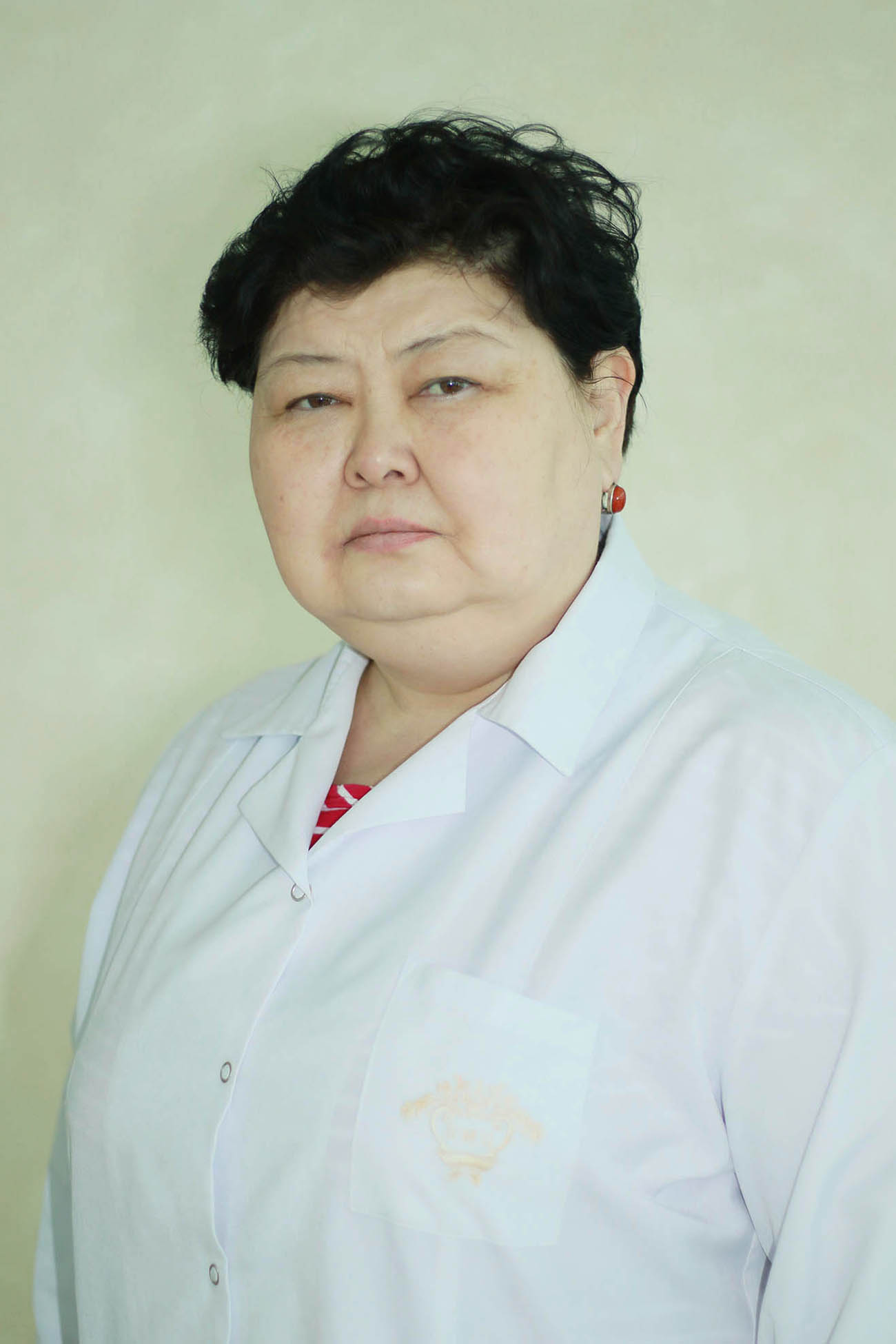 Gulshara Zhussupovna Abildinova
Gulshara Zhussupovna Abildinova Acting Head Clinical & Diagnostic Laboratory Chief
Laboratory for Personalized Genomics Diagnostics
Doctor of Medical Sciences
The Highest Category
Work experience: 35 years
The Highest Category
Work experience: 30 years
Senior Doctor Quality Control and Management Service Clinical & Diagnostic Laboratory
The Highest Category
Work experience: 16 years
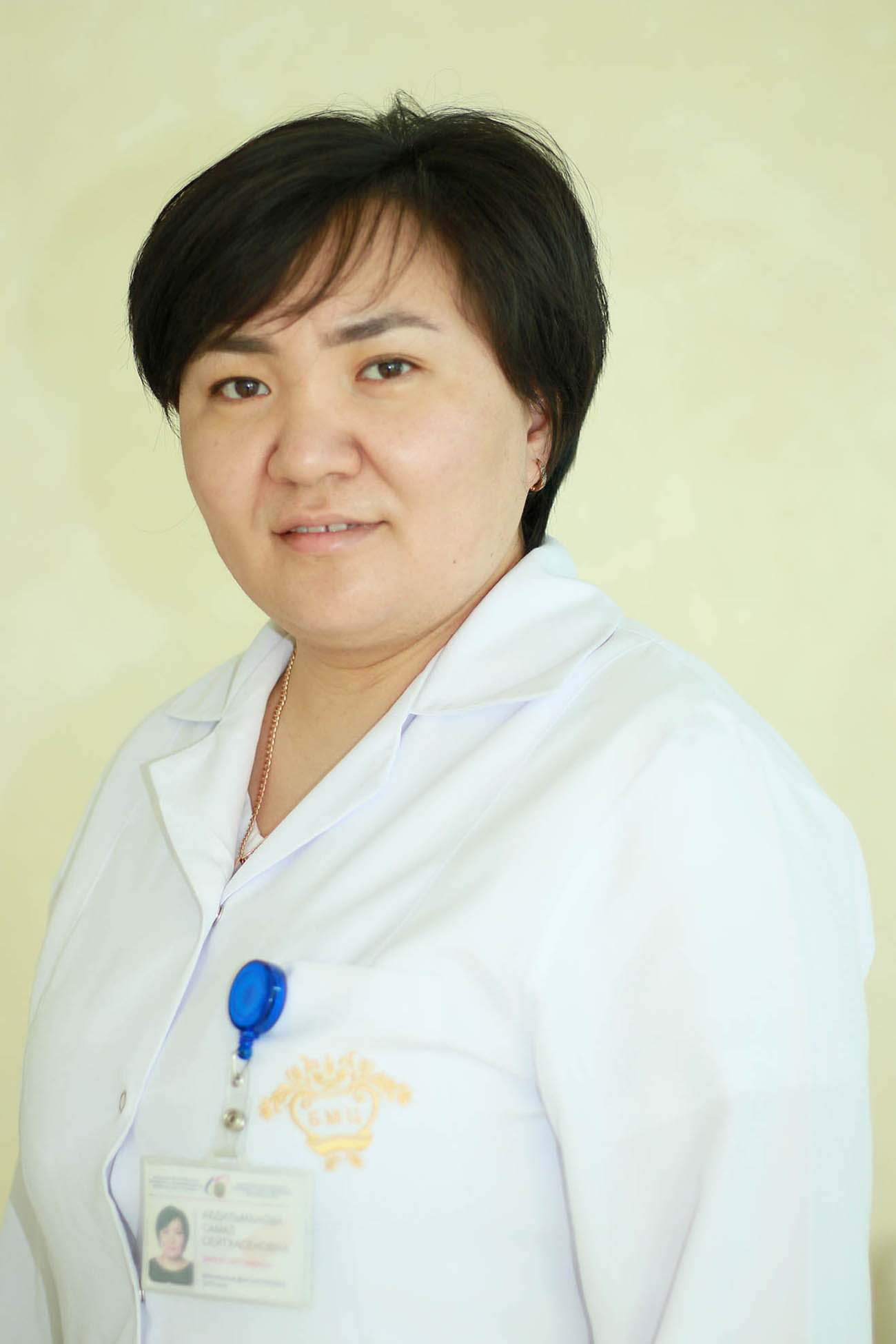 Samal Seitkhassenovna Abdilmanova
Samal Seitkhassenovna Abdilmanova Laboratory Doctor
The Highest Category
Work experience: 13 years
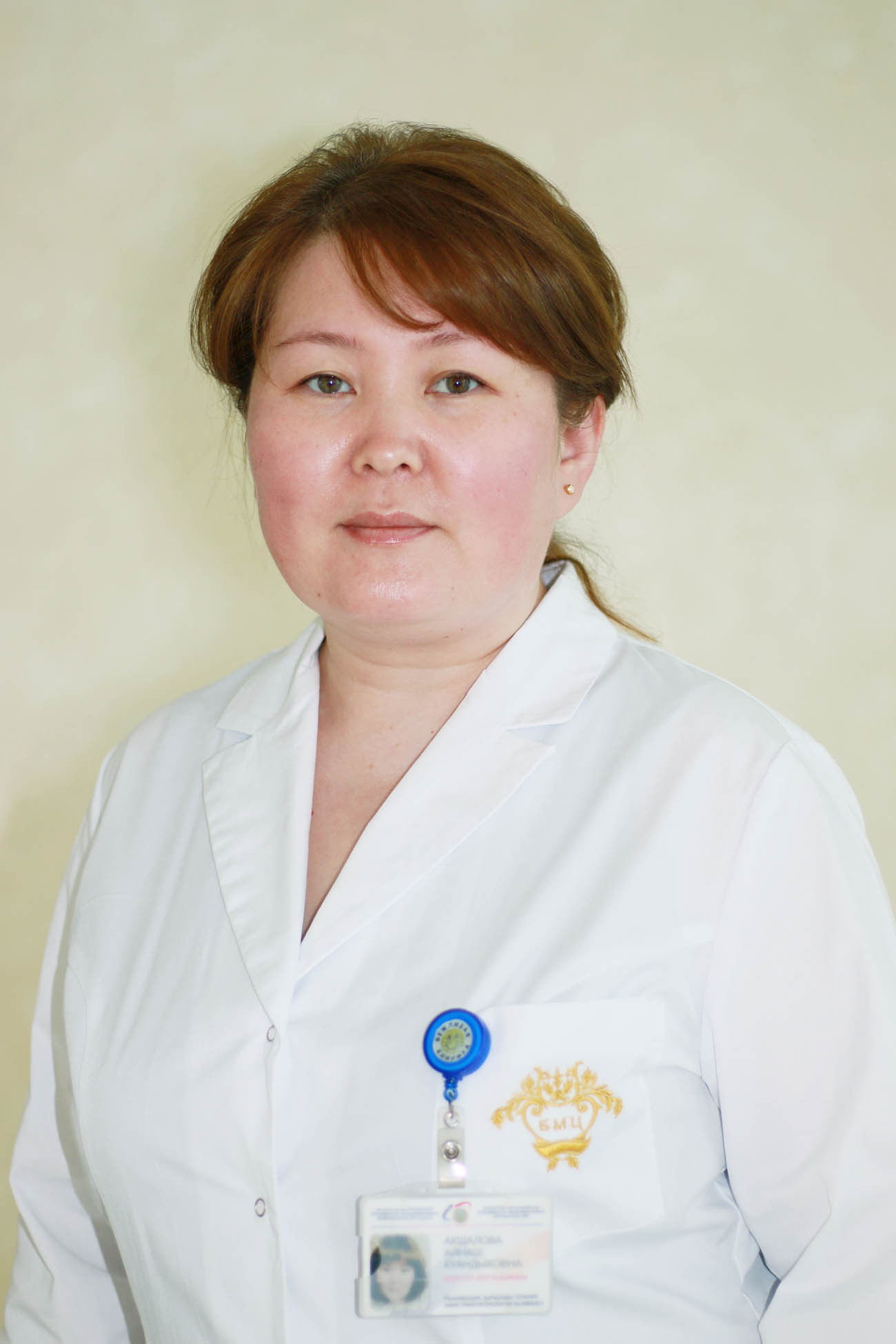 Ainash Kuandykovna Akshalova
Ainash Kuandykovna Akshalova Laboratory Doctor
The Highest Category
Work experience: 14 years
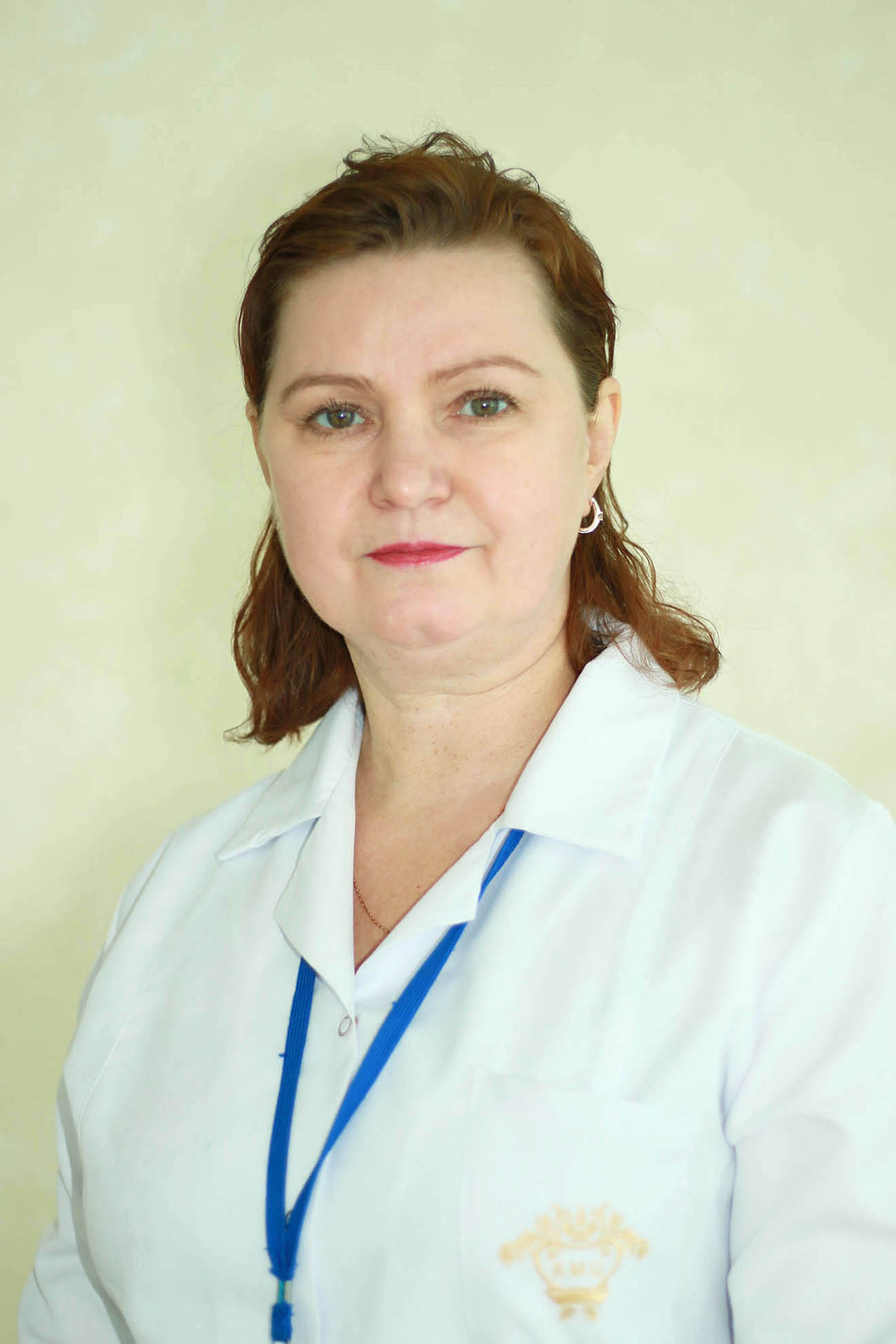 Yana Yevgeniyevna Belova
Yana Yevgeniyevna Belova Laboratory Doctor
The Highest Category
Work experience: 27 years
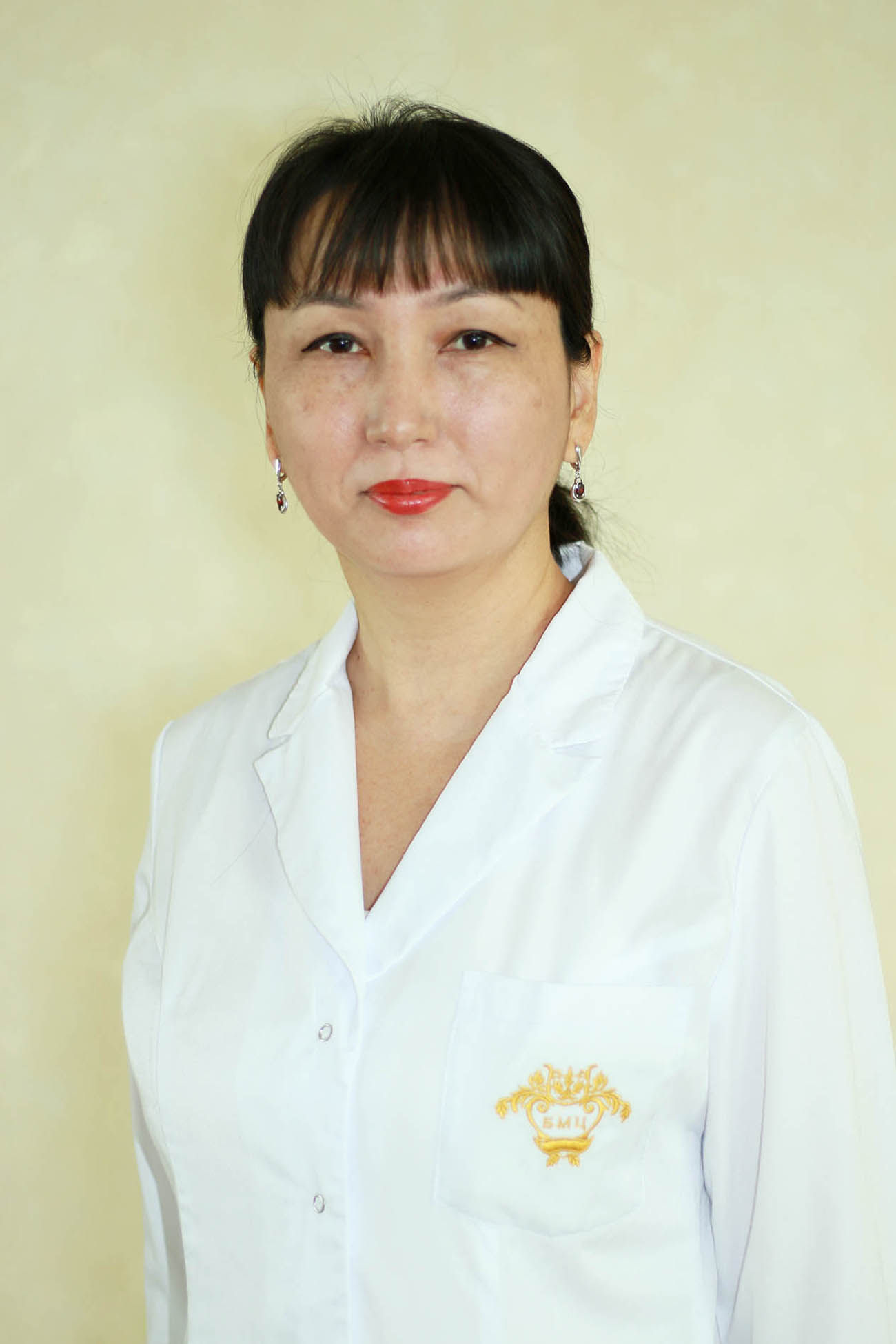 Kamshat Otanbekovna Zhamalatova
Kamshat Otanbekovna Zhamalatova Senior Doctor of the Express Laboratory
The Highest Category
Work experience: 15 years
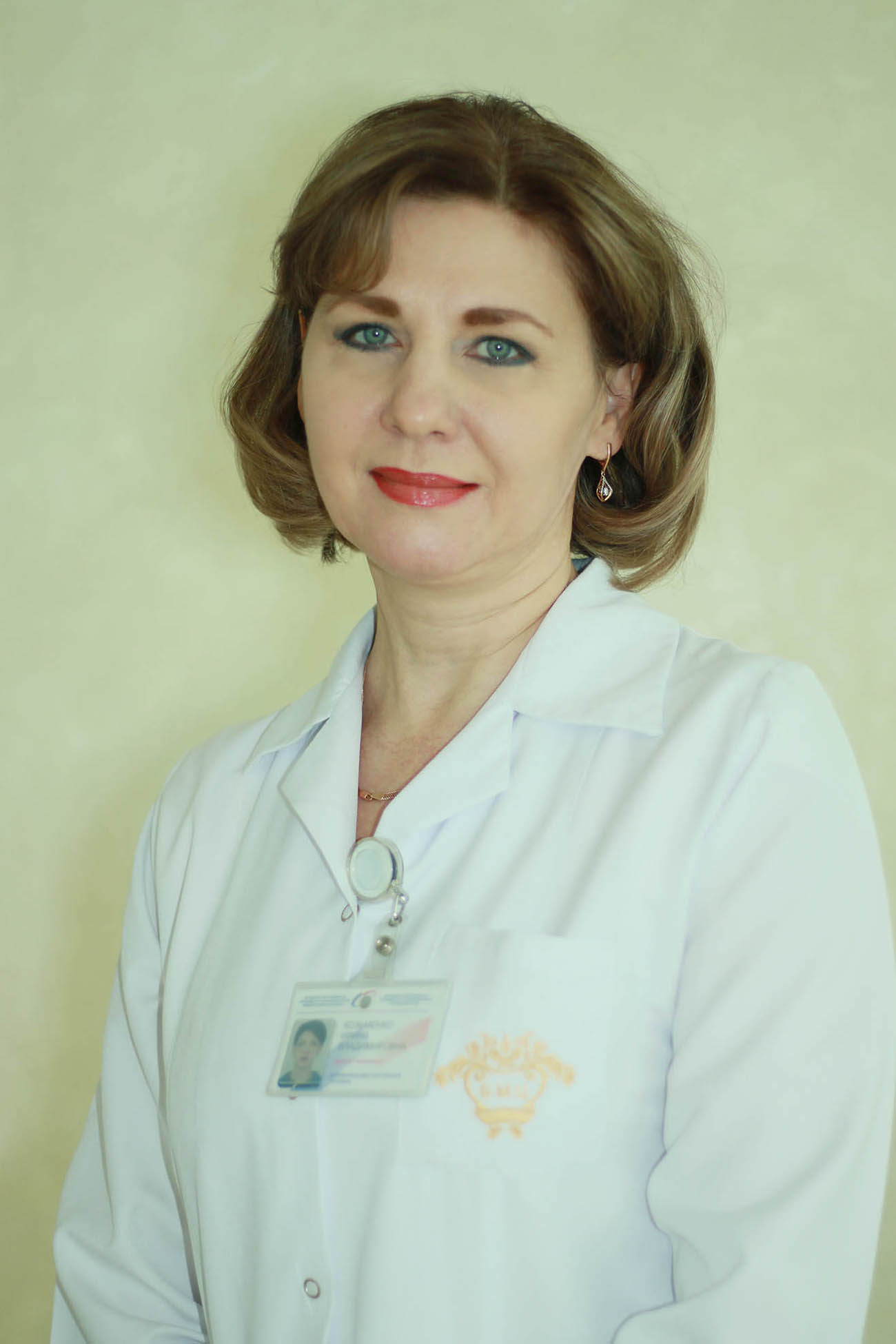 Irina Vladimirovna Kozmenko
Irina Vladimirovna Kozmenko Laboratory Doctor
The Highest Category
Work experience: 23 years
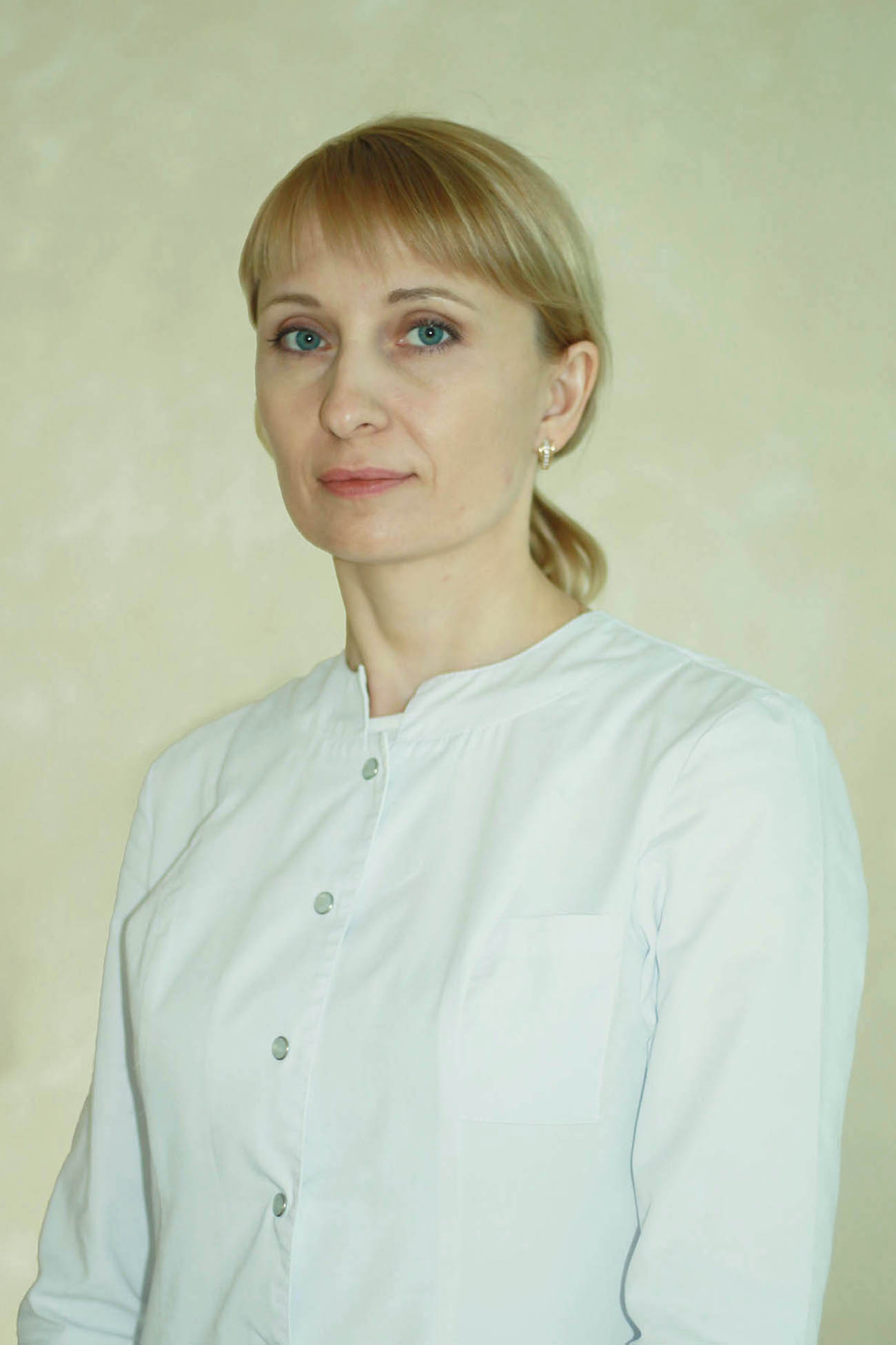 Olga Sergeyevna Konkova
Olga Sergeyevna Konkova Laboratory Doctor
The Highest Category
Work experience: 15 years
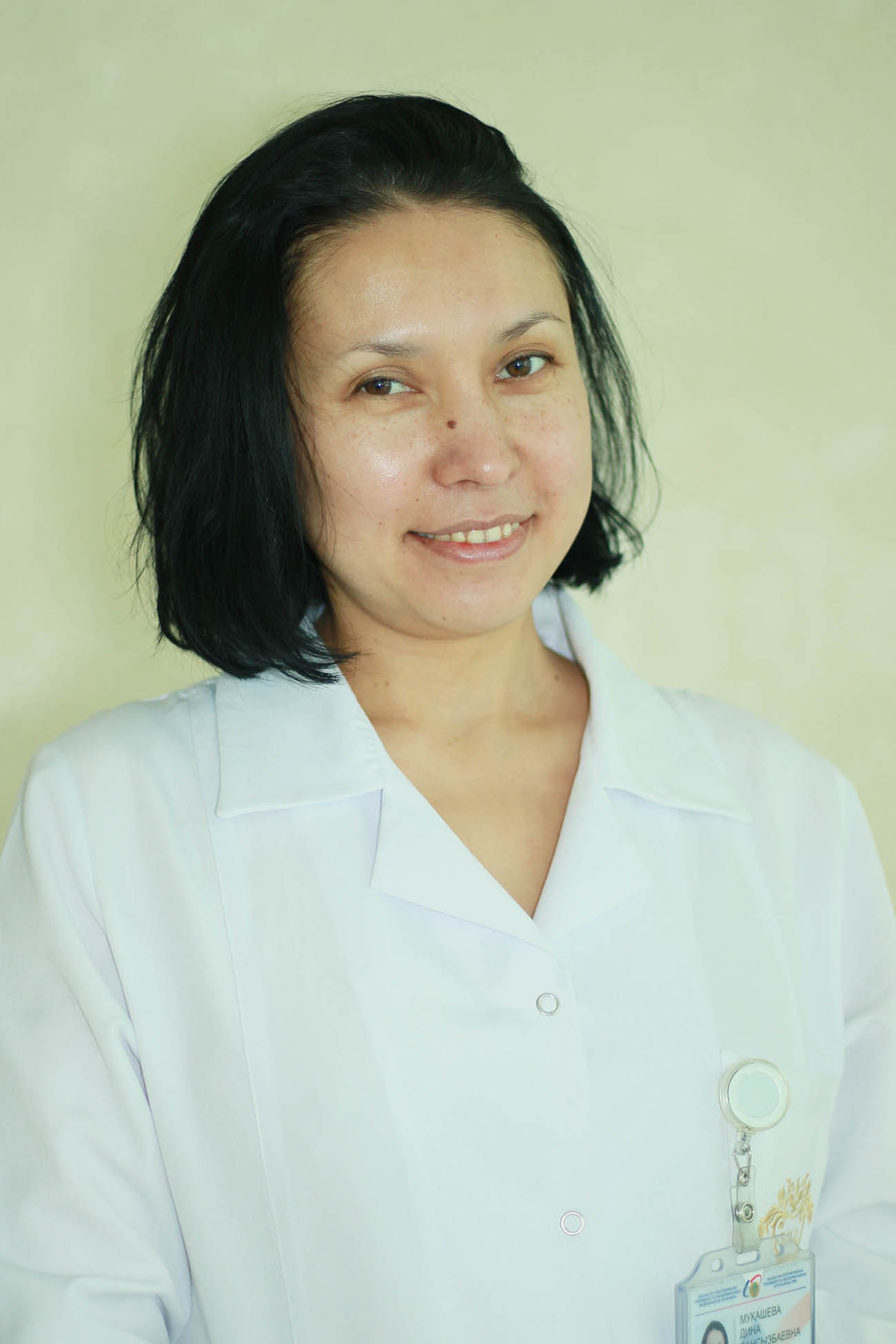 Dina Sansyzbayevna Mukasheva
Dina Sansyzbayevna Mukasheva Chief of the Clinical and Diagnostic Research Service
The Highest Category
Work experience: 15 years
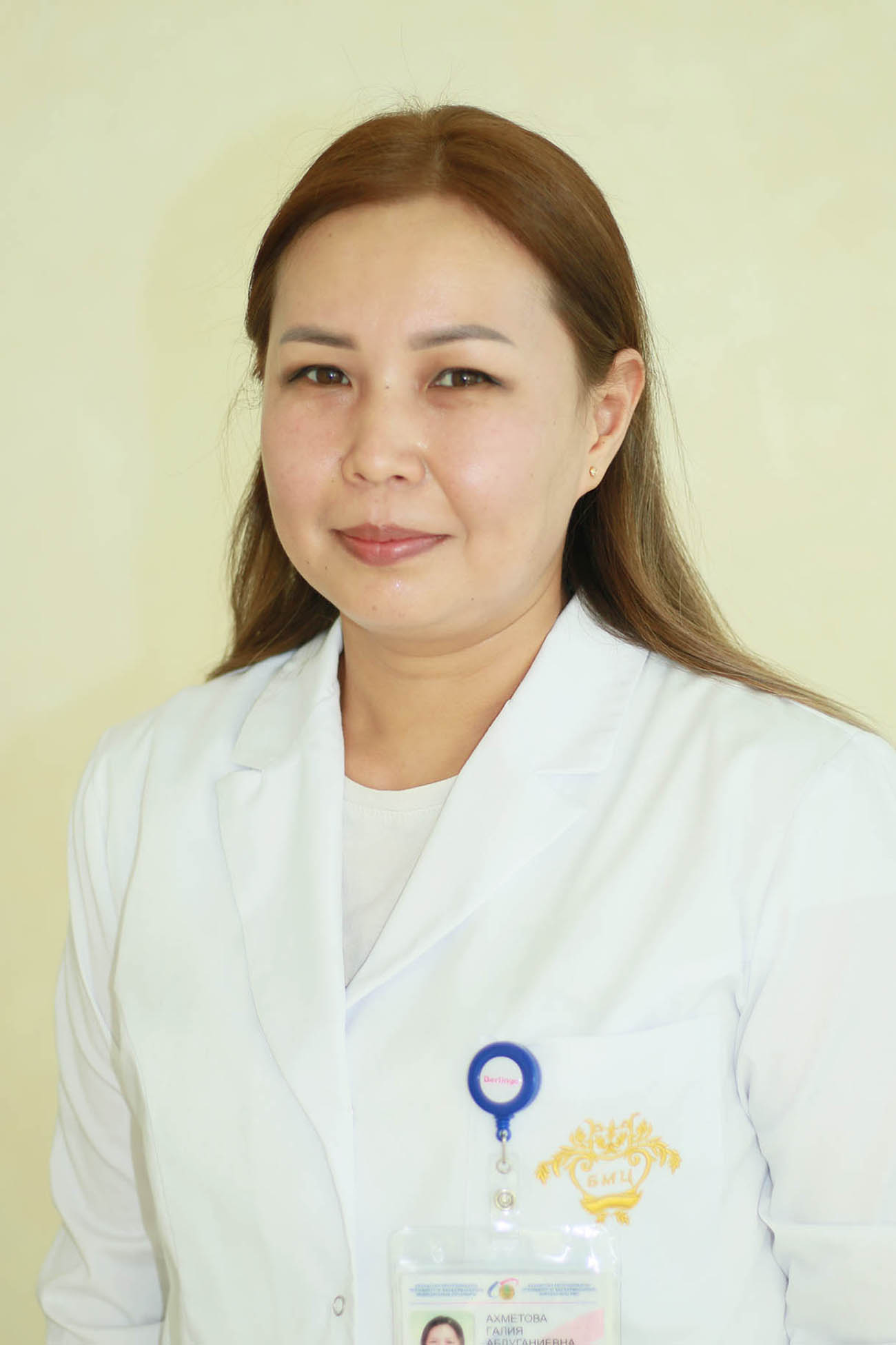 Galiya Abduganiyevna Akhmetova
Galiya Abduganiyevna Akhmetova Laboratory Doctor
The First Category
Work experience: 10 years
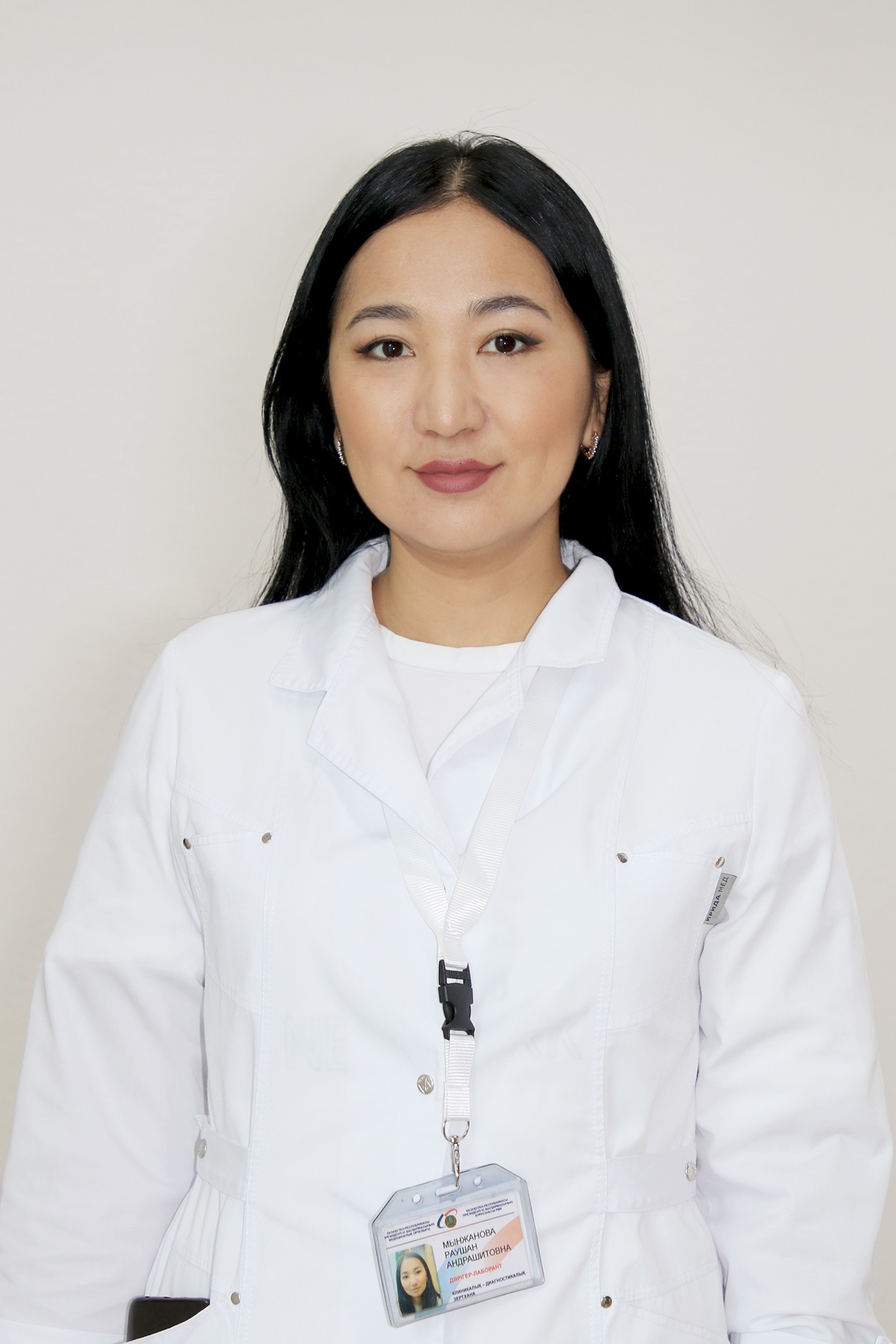 Raushan Andrashitovna Mynzhanova
Raushan Andrashitovna Mynzhanova Laboratory Doctor
The First Category
Work experience: 10 years
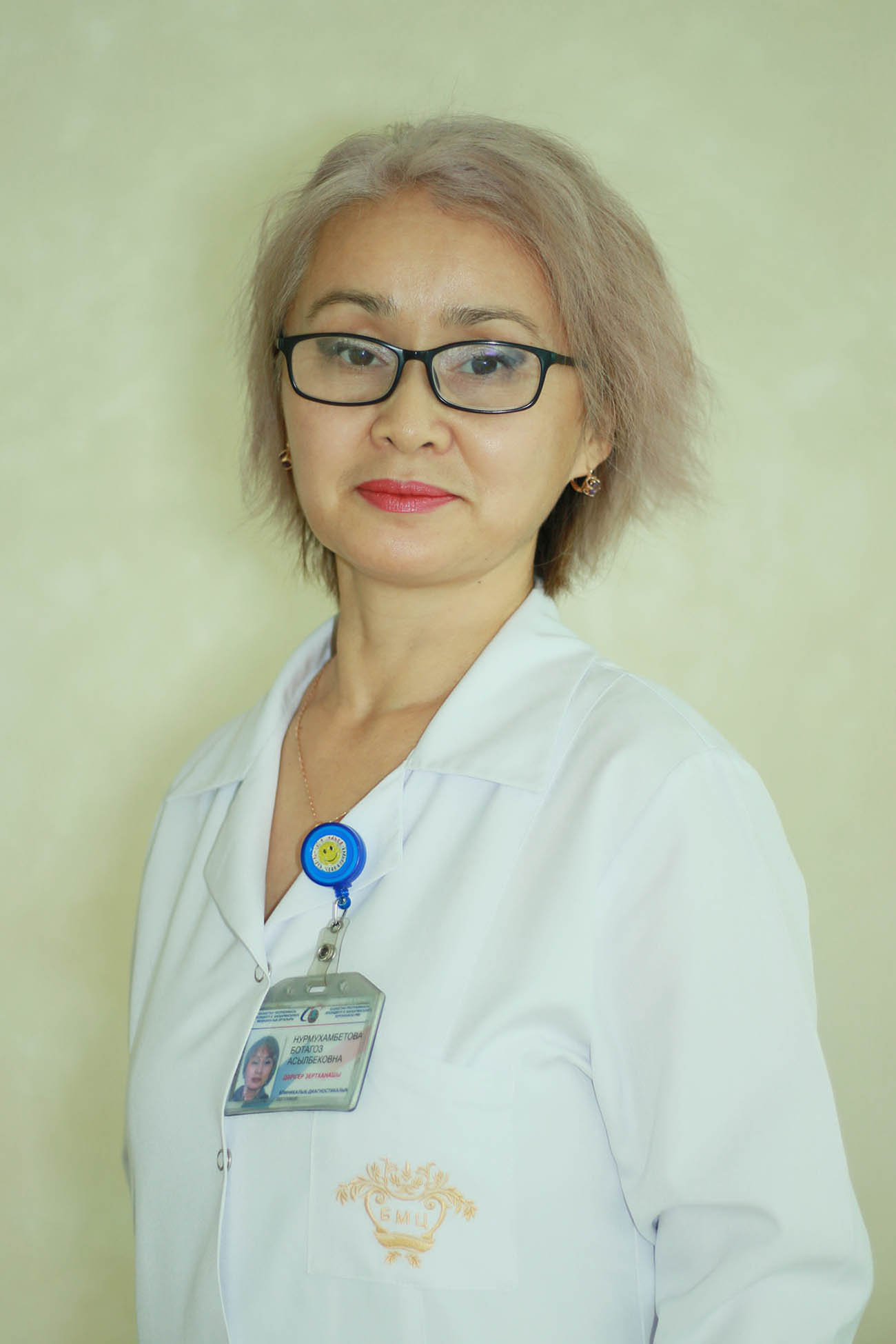 Botagoz Assylbekovna Nurmukhambetova
Botagoz Assylbekovna Nurmukhambetova Laboratory Doctor
The Highest Category
Work experience: 31 years
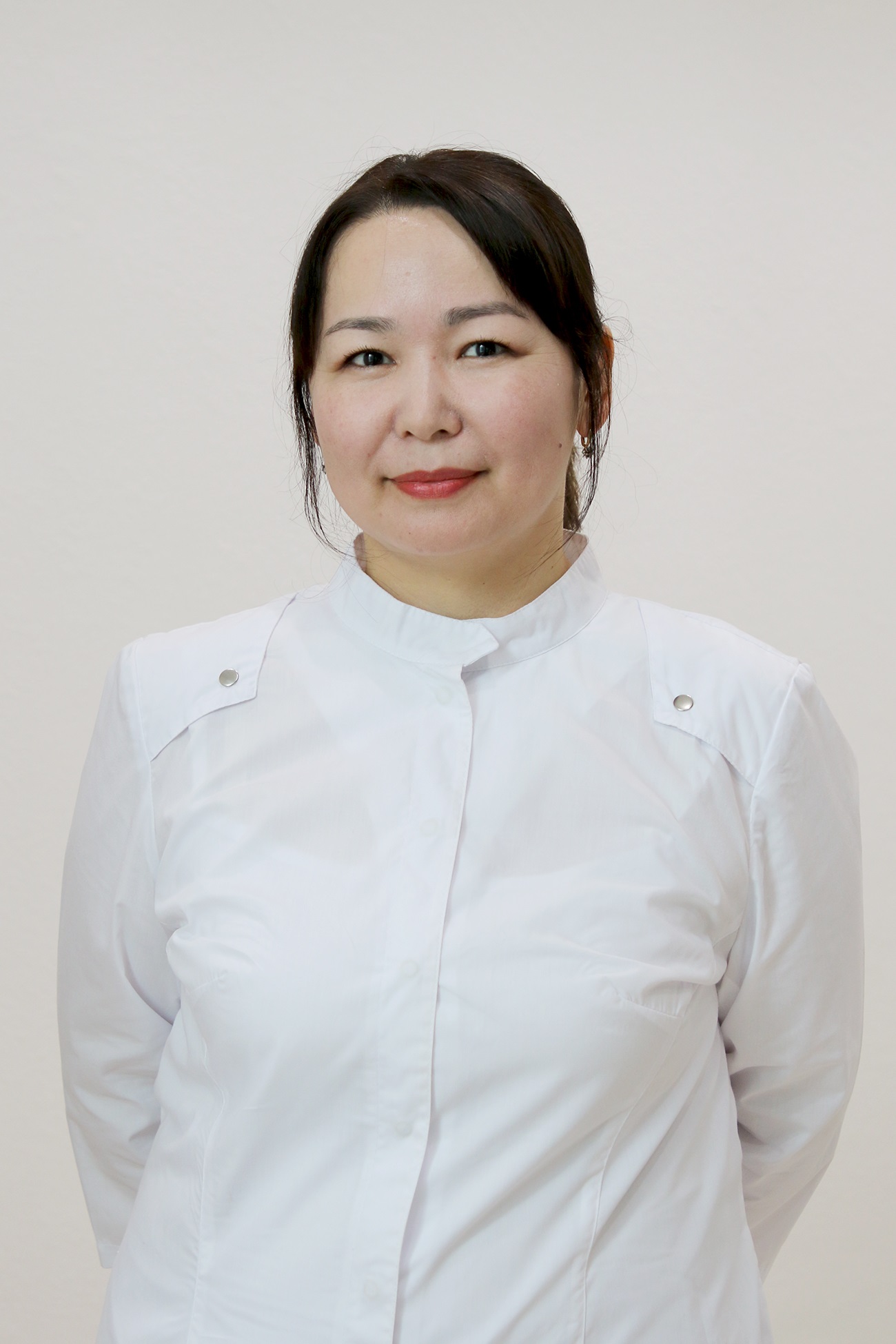 Dinara Temirkulkyzy Pernebayeva
Dinara Temirkulkyzy Pernebayeva Laboratory Doctor
The Highest Category
Work experience: 13 years
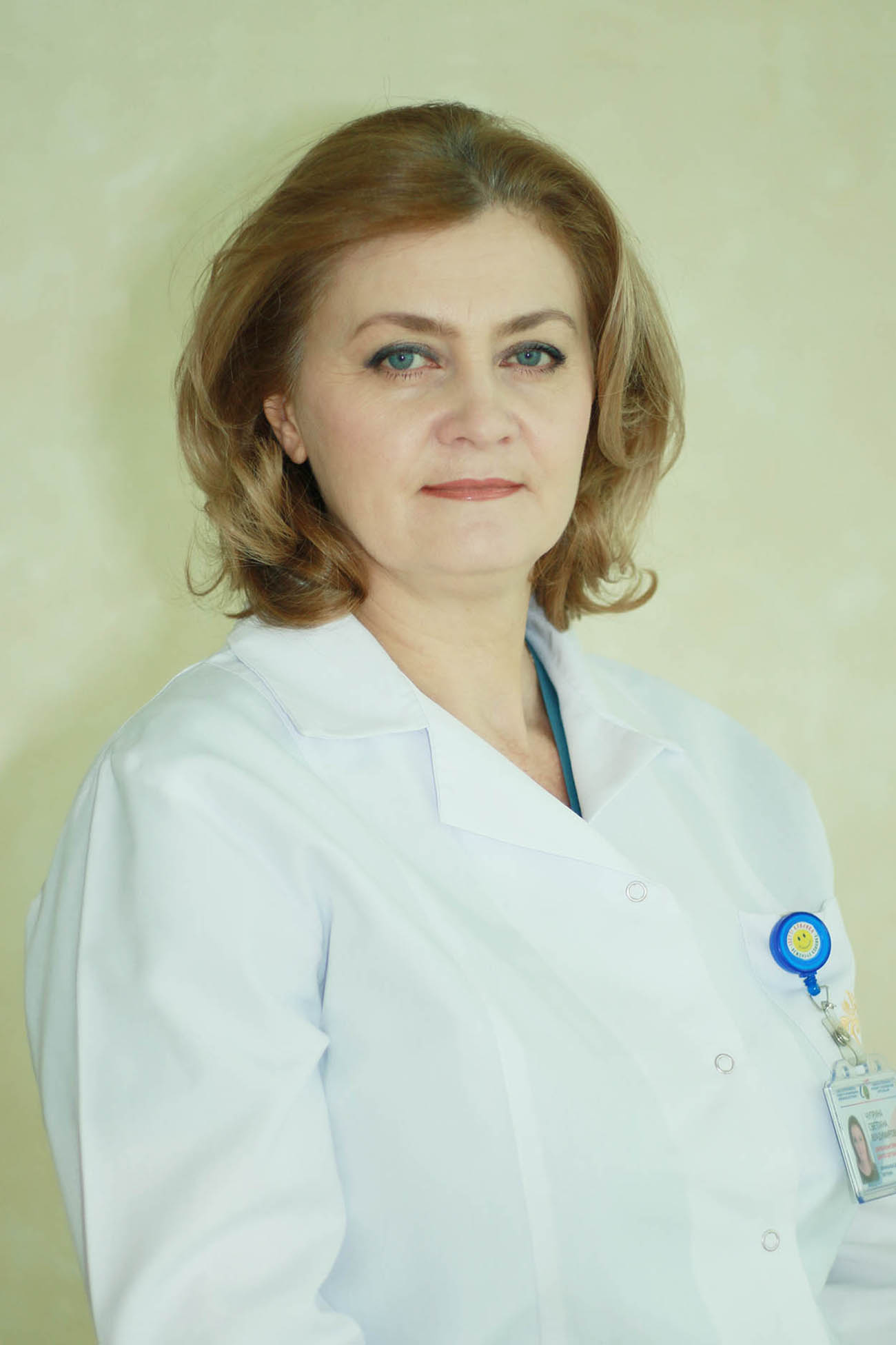 Svetlana Vladimirovna Chuprina
Svetlana Vladimirovna Chuprina Laboratory Doctor
The Highest Category
Work experience: 22 years
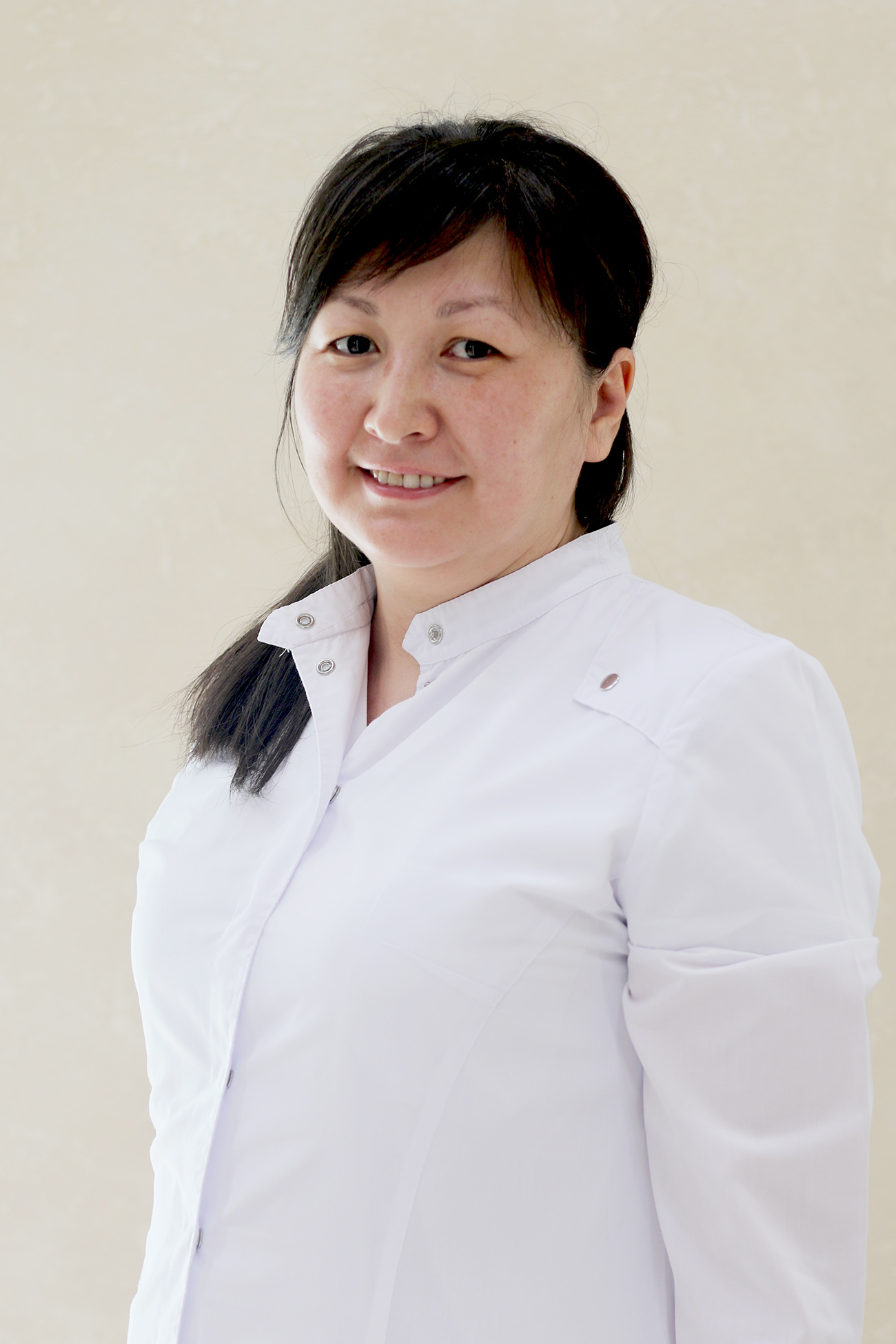 Diana Bakytovna Bekakhmetova
Diana Bakytovna Bekakhmetova Laboratory Doctor
The Highest Category
Work experience: 13 years
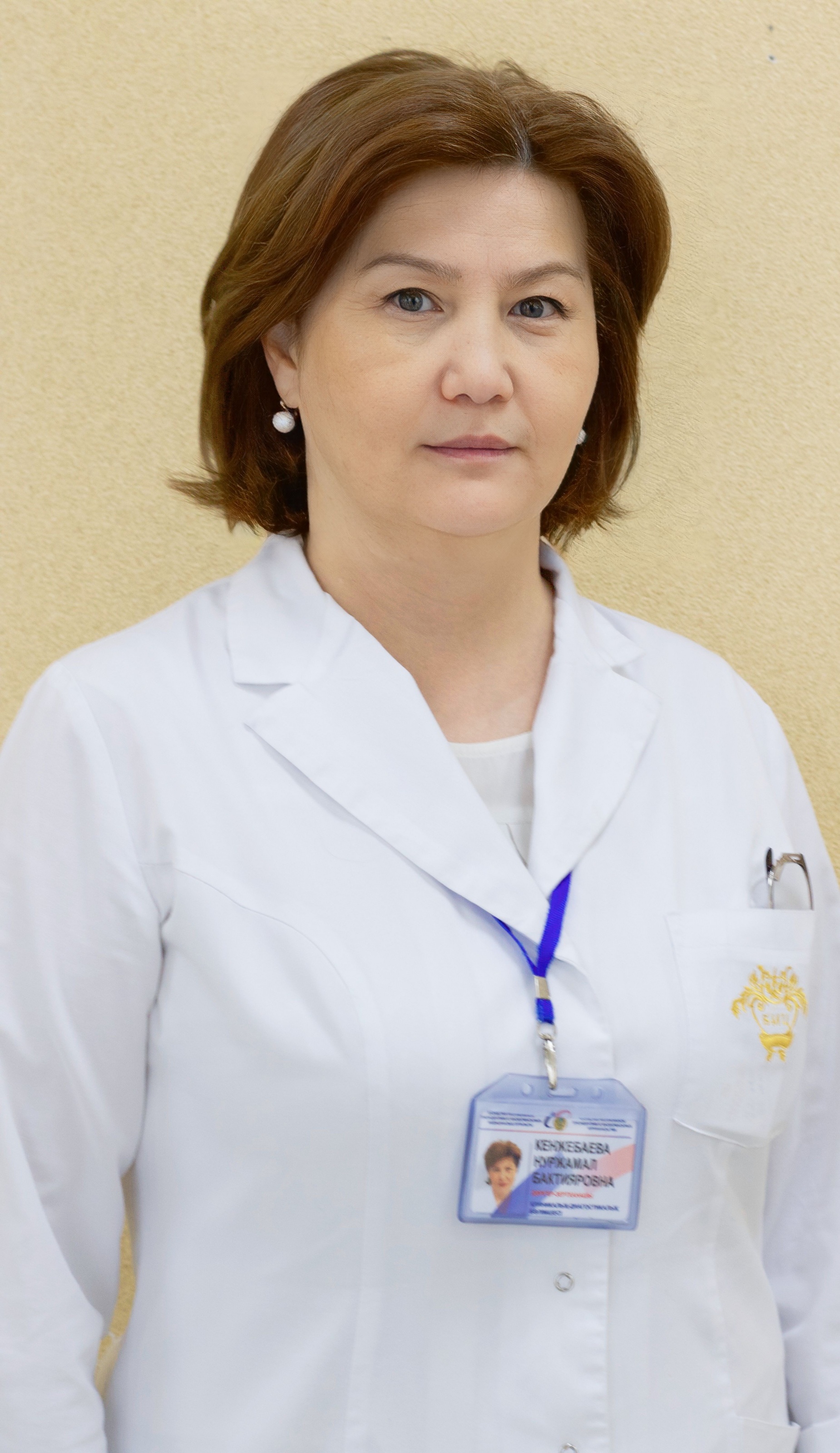 Kenzhebayeva Nurzhamal
Kenzhebayeva NurzhamalLaboratory Doctor
The Highest Category
Work experience: 38 years
Temporary PCR laboratory for diagnostic purposes of
COVID-19 coronavirus infection
About the Laboratory
Since
April 1, 2020, a temporary PCR laboratory has been opened for diagnostic purposes COVID-19 coronavirus infection. PCR is the gold
standard for testing the new SARS-CoV-2 virus. During the epidemic, more than
100 thousand PCR studies on COVID-19 were conducted in the laboratory. The Laboratory
conducts inter-laboratory comparison tests with the reference laboratory for
the control of viral infections of the branch of the SPCSEEM of the NCPHC of
Almaty city, also participated in the WHO Program to assess the effectiveness
of the laboratory for the detection of SARS-CoV-2 by PCR in 2020.
Laboratory services
The Laboratory also performs the following additional methods for diagnosing coronavirus infection:
Quantitative determination of IgG antibodies to SARS-CoV-2 (S, N - proteins)
Quantitative determination of IdM antibodies to SARS-CoV-2 (S, N - proteins)
Qualitative determination of IgG/IgM antibodies to SARS-CoV-2 (Rapid test)
Quantitative determination of neutralizing antibodies to the RBD domain of SARS-CoV-2 (nCoV-Nab, post-vaccination antibodies)
Rapid immunochromatographic test for the determination of the SARS-CoV-2 coronavirus antigen
Monday-Saturday: 08:00am to 01:00pm, 02:00pm to 07:00pm.
Sunday is a day off.
The biomaterial collection point for PCR testing is located in block F (entrance from the street, to the left of the main entrance to the Hospital).
Analysis results
Citizens of the Republic of Kazakhstan can get the result of a PCR test on COVID-19 through a mobile application e-Presidentionalhospital.kz. The app is available for free download in the App Store and Play Market. You need to register in the application, specifying the IIN and the phone number that was named when passing the analysis. The result form contains a QR code that has the force of a signature and seal, as well as an English version.
To obtain the test result in English, it is necessary to provide a passport when passing the analysis.
Patient preparation for PCR test for diagnostic purposes of COVID-19 coronavirus infection
1. Naso-oropharyngeal swаb is taken on an empty stomach or 3 hours after the last meal. The SARS-Cov-2 coronavirus lives inside epithelial cells. For a PCR test, it is important to obtain a swab with a sufficient number of infected cells. At the time of ingestion of food, a food lump from the surface of the mucous membrane mechanically exfoliates epithelial cells. If you take a swab immediately after eating, an insufficient number of infected cells may get into the test tube.
2. You shall not use medicines for topical application (drops, sprays, etc.) in the nose and throat before taking swab. After their application, the amount of virus on the mucosa decreases and the probability of obtaining false negative PCR test results increases.
3. 3 hours before the test, it is forbidden to brush your teeth, rinse your mouth, drink and chew gum. The main goal at the stage of taking swab for PCR is to obtain biological material with a sufficient number of cells affected by coronavirus. The use of any oral cleansers reduces the amount of virus in the resulting swab.
4. Don’t drink alcohol at least 2 days before taking a swab. Alcohol contains ethyl alcohol (ethanol), which is also part of many antiseptics, so after taking alcohol, the probability of detecting coronavirus in a swab may also decrease.
Contacts of the Laboratory
Head of the CDL: +7 (7172) 70 - 80 - 52
Head of the Personalized Genomic Diagnostics Laboratory +7 (7172) 70 - 81 - 34
Registration office of CDL: +7 (7172) 70-80-61
Registration office of the temporary PCR laboratory: +7 (7172) 70 - 78-80, internal subscriber number 73-94
Registration office of the Microbiological Research Department: +7 (7172) 70 - 79 - 48

